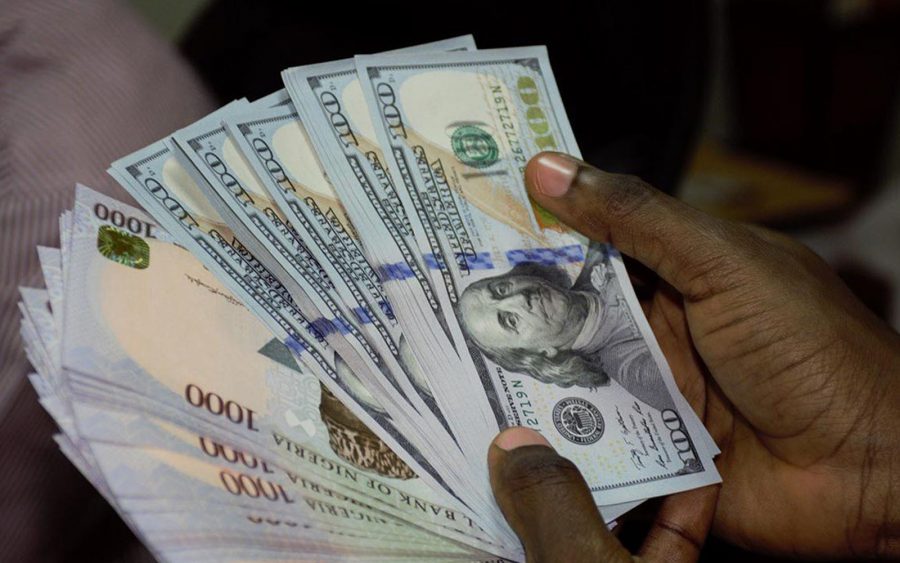Naira gains at black market as CBN move against prominent businessmen for forex abuse
By Chike Olisah

Nigeria’s exchange rate at the NAFEX window remained stable for the fourth consecutive trading day to still close at N386/$1 during intraday trading on Thursday, September 17.
Also, the naira appreciated closing at N462/$1 at the parallel market as the Central Bank of Nigeria (CBN) intensifies its move against forex abuse by asking banks to send domiciliary accounts details of some prominent businessmen
Parallel Market: At the black market where forex is traded unofficially, the Naira appreciated against the dollar to close at N462/$1 on Thursday, according to information from Abokifx, a prominent FX tracking website. This represents a N3 gain when compared with the N465/$1 that it exchanged on Wednesday, September 16.
Currency Developments
- The local currency has strengthened by about 7.8% within the last one week at the black market, as the Central Bank of Nigeria introduced some measures targeted at exporters and importers in order to try to boost the supply of dollars in the foreign exchange market and reduce the high demand for forex by traders.
- The CBN has sold over $150 million to BDCs since the resumed forex sales on Monday, September 7, 2020. This was expected to inject more liquidity to the retail end of the foreign exchange market and discourage hoarding and speculation.
- However, the exchange rate against the dollar has failed to sustain the initial gains made after the CBN announced plans to provide liquidity.
- BDC operators have urged the apex bank to reconsider the margin allowed for the currency traders as it was inadequate to meet their expenses.
- We also noted that forex traders monitored during the previous week appear to hoard forex as they anticipated further depreciation in the market.
- There has been a sharp drop in speculative buying of foreign exchange, although demand backlog by manufacturers and foreign investors still puts pressure and creates a volatile situation in the foreign exchange market.
NAFEX: The Naira still remained stable against the dollar at the Investors and Exporters (I&E) window on Thursday, closing at N386/$1.
- This was exactly the same rate that it exchanged for on Wednesday, September 16.
- The opening indicative rate was N386.05 to a dollar on Thursday. This represents a 5 kobo drop when compared to the N386 to a dollar that was recorded on Wednesday.
- The N391.99 to a dollar is the highest rate during intraday trading before closing at the rate of N386/$1. It also sold for as low as N380/$1 during intraday trading.
Forex Turnover: Forex turnover at the Investor and Exporters (I&E) window declined by 68.9% on Thursday, September 17, 2020.
- According to the data tracked by Nairametrics from FMDQ, forex turnover dropped sharply from $282.23 million on Wednesday, September 16, 2020, to $87.78 million on Thursday, September 17, 2020.
- The unusual huge forex supplies at the NAFEX window CBN’s move to clear the huge backlog of foreign exchange demand, especially by foreign investors wishing to repatriate back their funds.
- The drop in forex supply reinforces the volatility of the foreign exchange market. The supply of dollars has been on a decline for months due to low oil prices and the absence of foreign capital inflow into the country.
- The average daily forex sale for last week was about $34.5 million which represents a drop from the $58.52 million that was recorded the previous week.
- Total forex trading at the NAFEX window in the month of August was about $857 million compared to $937 million in July.
- According to a monitored media report and as part of the move against forex abuse and follow up to its earlier order, the apex bank directed deposit money banks to provide details of domiciliary accounts of some 12 top Nigerian businessmen, foreigners, and others.




